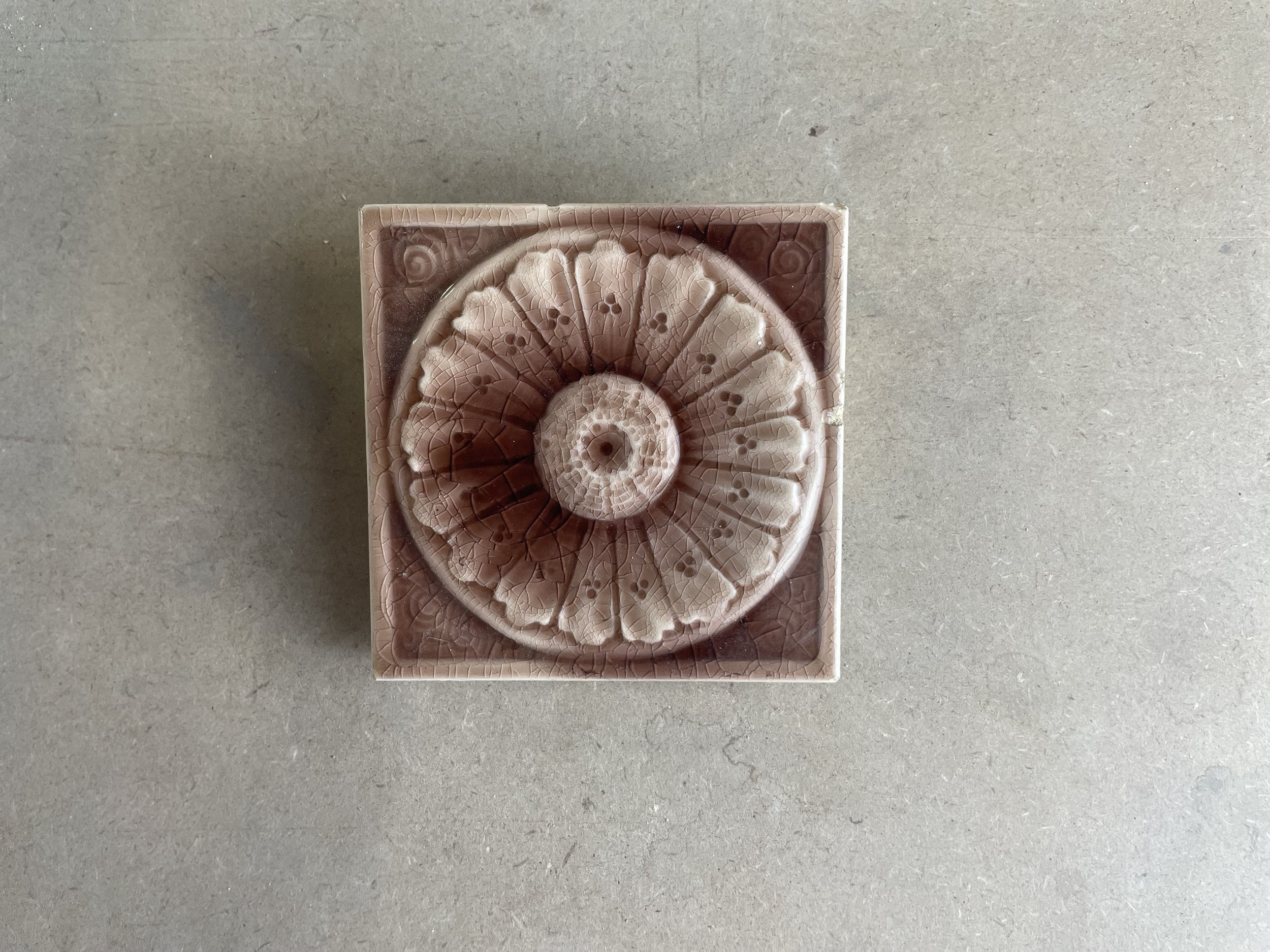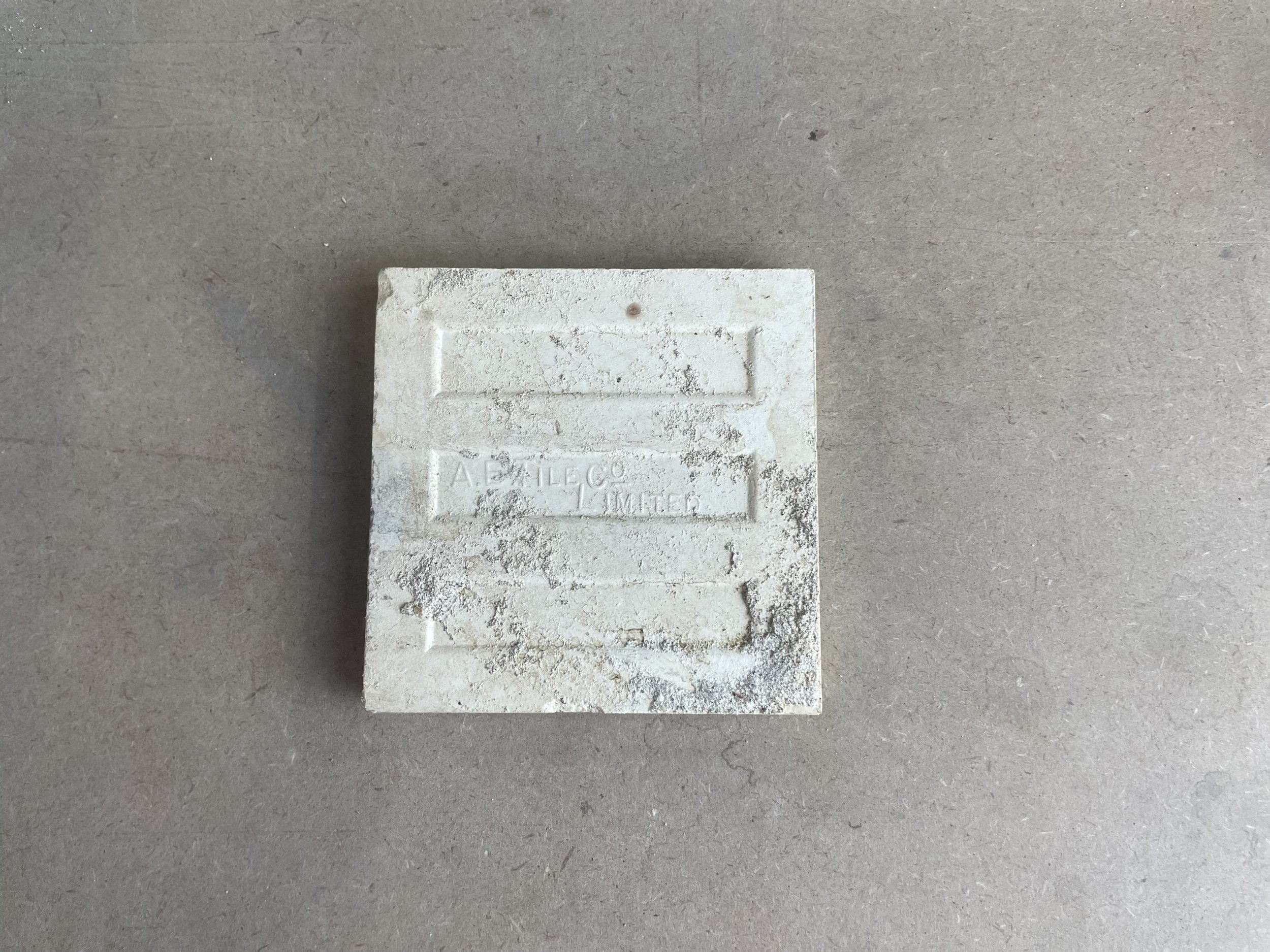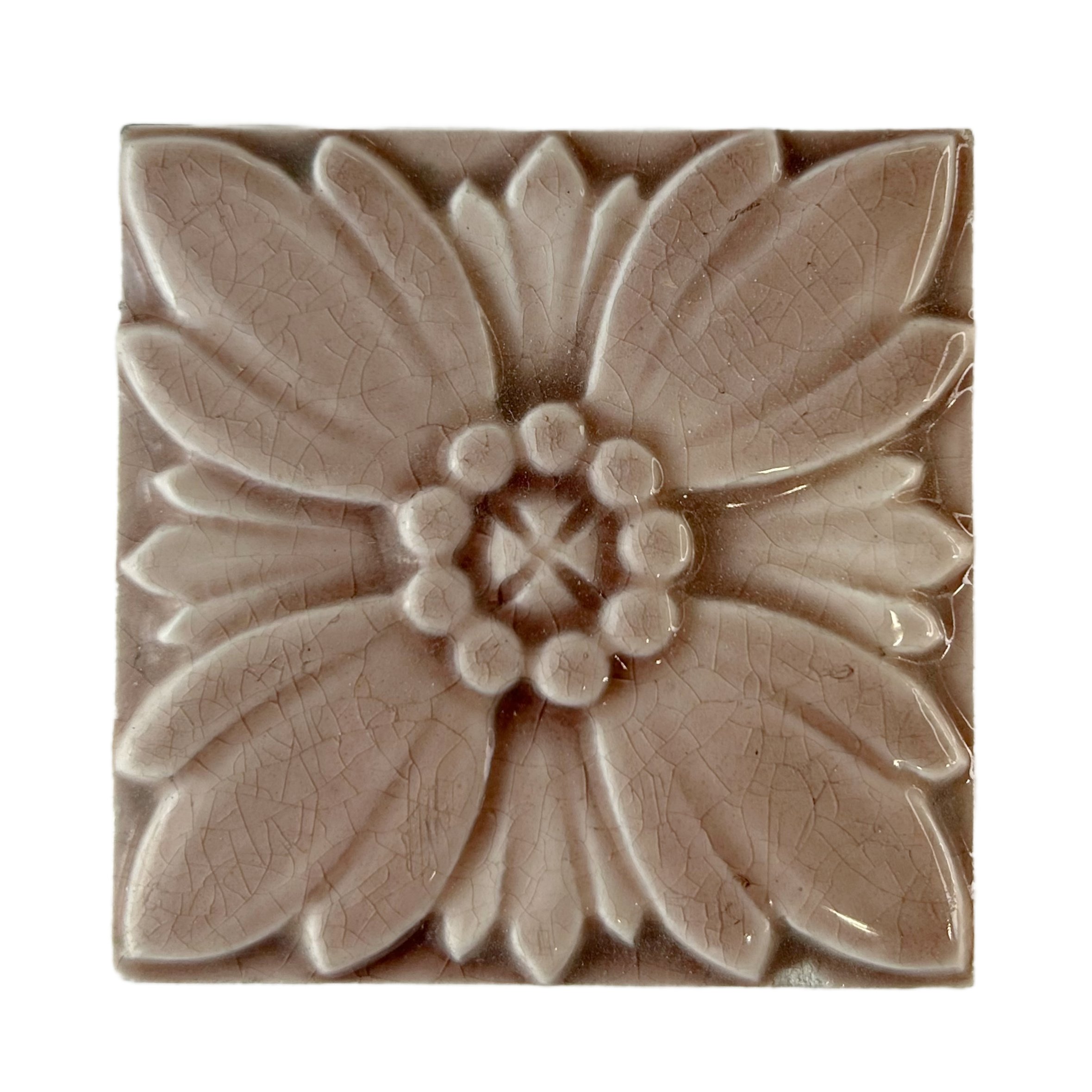Gorgeous 19th Century Mauve Victorian Figural Tiles - AETCo
These gorgeous mauve figural tiles from American Encaustic Tile Co. feature rich mauve glaze that pools in lower parts of the design, creating a striking colorway. They can be incorporated into tile fireplace surrounds, bathroom tile designs, kitchen backsplashes, vestibules, or any other interior areas. Contact us to create a custom design that features these historical pieces.
Priced per tile.
These gorgeous mauve figural tiles from American Encaustic Tile Co. feature rich mauve glaze that pools in lower parts of the design, creating a striking colorway. They can be incorporated into tile fireplace surrounds, bathroom tile designs, kitchen backsplashes, vestibules, or any other interior areas. Contact us to create a custom design that features these historical pieces.
Priced per tile.
These gorgeous mauve figural tiles from American Encaustic Tile Co. feature rich mauve glaze that pools in lower parts of the design, creating a striking colorway. They can be incorporated into tile fireplace surrounds, bathroom tile designs, kitchen backsplashes, vestibules, or any other interior areas. Contact us to create a custom design that features these historical pieces.
Priced per tile.
Additional info
Shipping
All tiles are shipped via UPS Ground with standard insurance and tracking for $14. All items are sold as is with no warranties expressed or implied.
-
Each tile measures 4 1/4” x 4 1/4”.
-
Ready for install: fully cleaned and free of loose mortar, grout, and soot
Excellent condition
All tiles are fully checked for cracks or chips, any tiles that do not meet our installation standards are not placed in inventory.
-
These tiles were made by the American Encaustic Tile Company out of Zanesville, Ohio and New York City. At one time reported to be the largest tile manufacturer in the world, the company was founded in 1874. The firm produced the famous nursery tiles designed by Walter Crane, and later hired Frederick H. Rhead (a major figure in American ceramics history) to head its research. In the 1920s they branched into faience tiles to capture the growing market of interest in Arts & Crafts tiles. The Zanesville plant closed in 1935, a victim of the Great Depression














